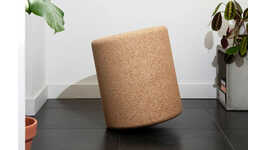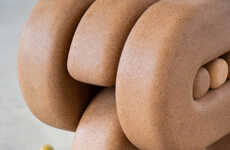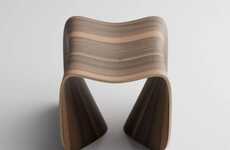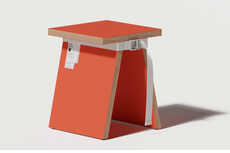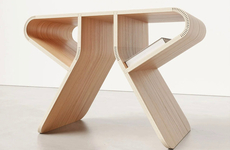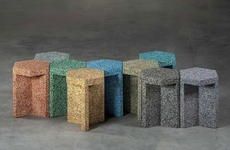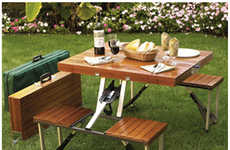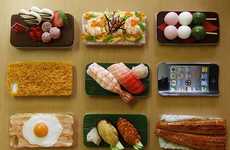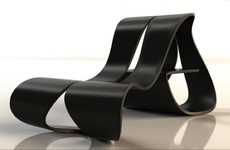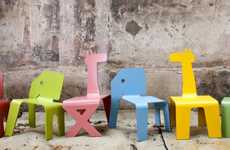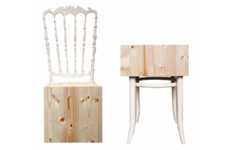
This Leg Rest Stool Explores Formal and Functional Limits
Amelia Roblin — October 31, 2011 — Eco
References: industrialdesignserved
Using recycled materials to develop something entirely new is an admirable undertaking; however, it is then often difficult to produce a product with its own strength of identity. This Leg Rest Stool was designed by Ruben Constanco in a way that involved the artistic manipulation of the piece's primary components to let it grown beyond its building blocks.
Old sheets of MDF and cork make up this unusual-looking footrest, sculpted into expressive forms in the way that only such inflexible materials can be. Neither could be molded or folded, so the creator gave them shape through the precise cutting of sinuous outlines. To make the profile of the overall piece more pronounced, 25 sandwiched panels were given the exact same silhouette and arranged in a series to compose the Leg Rest Stool.
Old sheets of MDF and cork make up this unusual-looking footrest, sculpted into expressive forms in the way that only such inflexible materials can be. Neither could be molded or folded, so the creator gave them shape through the precise cutting of sinuous outlines. To make the profile of the overall piece more pronounced, 25 sandwiched panels were given the exact same silhouette and arranged in a series to compose the Leg Rest Stool.
Trend Themes
1. Recycled Materials - Using recycled materials to create unique designs and products can lead to disruptive innovation opportunities in sustainability and eco-friendly industries.
2. Artistic Manipulation - Exploring artistic manipulation and unconventional techniques in design can disrupt traditional manufacturing processes and open up opportunities for creativity and unique product development.
3. Precise Cutting Techniques - Developing precise cutting techniques for inflexible materials can drive innovation in furniture design, enabling the creation of expressive and sculptural pieces.
Industry Implications
1. Sustainable Design - The use of recycled materials in unique designs creates opportunities for disruptive innovation in the sustainable design industry.
2. Eco-friendly Products - Innovative use of recycled materials can lead to disruptive opportunities in the eco-friendly products industry, providing sustainable alternatives to traditional materials.
3. Furniture Manufacturing - Exploring artistic manipulation and precise cutting techniques in furniture design can disrupt the traditional furniture manufacturing industry, offering new possibilities for expressive and sculptural designs.
1.7
Score
Popularity
Activity
Freshness



